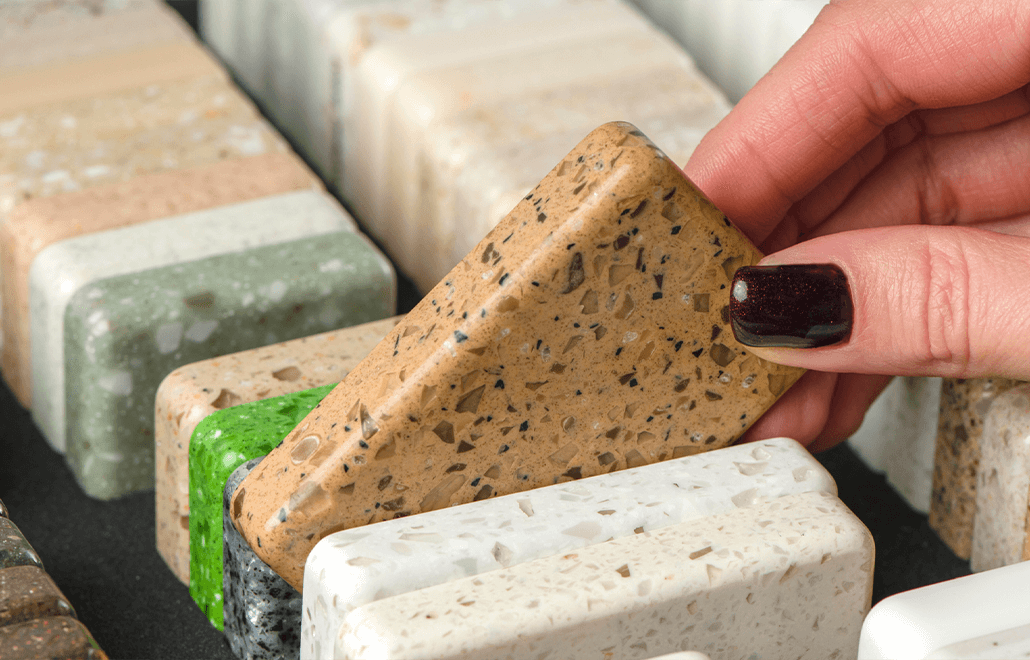
26 May The Science of Stone Selection: Understanding the Geological Factors that Influence Stone Characteristics
At Arlington Marble, we pride ourselves on not just providing beautiful stone surfaces but also on understanding the intricate science behind each piece of stone we work with. When it comes to selecting the perfect stone for your project, it’s essential to consider the geological factors that influence its characteristics. Let’s delve into the fascinating world of stone selection and explore the science behind it.
Firstly, it’s crucial to understand that different types of stone are formed under varying geological conditions, resulting in distinct characteristics. Take granite, for example. Granite is an igneous rock formed from the slow crystallization of magma beneath the Earth’s surface. Its unique composition of minerals, including quartz, feldspar, and mica, gives granite its signature speckled appearance and exceptional durability.
On the other hand, marble is a metamorphic rock that forms from the recrystallization of limestone under high heat and pressure. This process results in the distinctive veining and soft, elegant appearance that marble is known for. However, because marble is primarily composed of calcite, it is more susceptible to etching and staining compared to granite.
Quartzite is another popular choice for countertops, prized for its beauty and durability. Formed from sandstone subjected to heat and pressure, quartzite undergoes a transformation that renders it harder and more resistant to scratching and etching than marble. Its stunning veining and vibrant colors make it a sought-after option for both residential and commercial projects.
Understanding the geological factors that influence stone characteristics is crucial for selecting the right stone for your project. For example, if you’re looking for a material that can withstand the rigors of a busy kitchen, granite or quartzite may be the ideal choice due to their durability and resistance to heat and scratches.
Additionally, geological factors can also influence the aesthetic appeal of stone. For instance, the presence of certain minerals can impart unique colors and patterns to the stone, creating visually striking countertops and surfaces. By understanding these geological nuances, designers and homeowners can make informed decisions that align with their aesthetic preferences and functional requirements.
In conclusion, the science of stone selection is a fascinating journey into the Earth’s geological history. By understanding the geological factors that influence stone characteristics, we can better appreciate the beauty and durability of different types of stone. Whether you’re drawn to the timeless elegance of marble or the rugged beauty of granite, Arlington Marble is here to help you select the perfect stone for your project, backed by our expertise and passion for quality craftsmanship.
